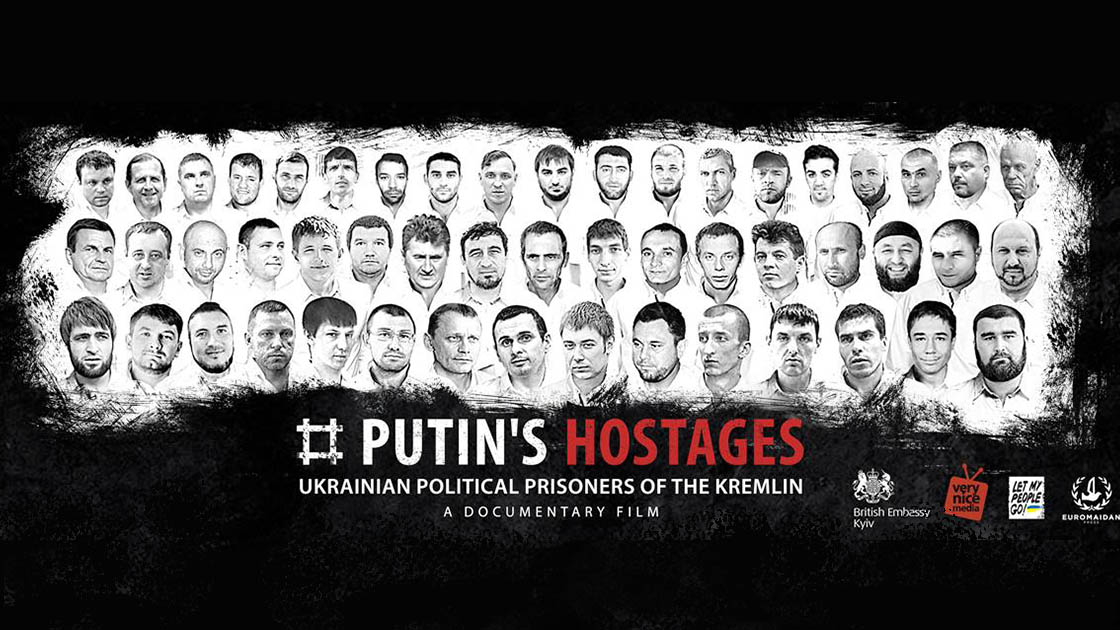Released on June 14, Ukrainian political prisoners Gennadiy Afanasyev and Yuriy Soloshenko meet us at the hospital where they were taken after their arrival in Ukraine.
“Too many impressions. We're exhausted... We’re used to being alone. After all, we've been in prison all this time. So much fuss and attention are a little too much for us.”
They've agreed to talk to us together because they've lived through similar horrors and experienced life in prison although they weren’t in the same cell. They tell us their stories, remembering the past two years, supporting each other, and understanding what is so hard for us to imagine.
Gennadiy starts telling us about the arrest and beatings. His mother, Olga leaves the room with tears in her eyes. When he recalls how he was forced to sign a deposition, Yuriy holds him tightly by the shoulders: “No one can say what he’d do in such a situation.”
They sit next to each other. 25-year-old Gennadiy is in a T-shirt emblazoned with the Ukrainian trident, and a trident pendant around his neck. A Ukrainian flag lies beside him. He apologizes for speaking Ukrainian so slowly as he hasn’t spoken it for a long time. He is determined to speak Ukrainian only… it’s a matter of principle.
74-year-old Yuriy is in a simple white T-shirt and hospital pants. He twists a handkerchief between his fingers. When Gennadiy describes how he was tortured, Yuriy’s eyes redden and fill with tears.
Both will undergo medical examinations and treatment and then return to normal life in Ukraine. But today, they want to talk… a lot and with feeling.
“People should know what happened over there.”
GENNADIY AFANASYEV
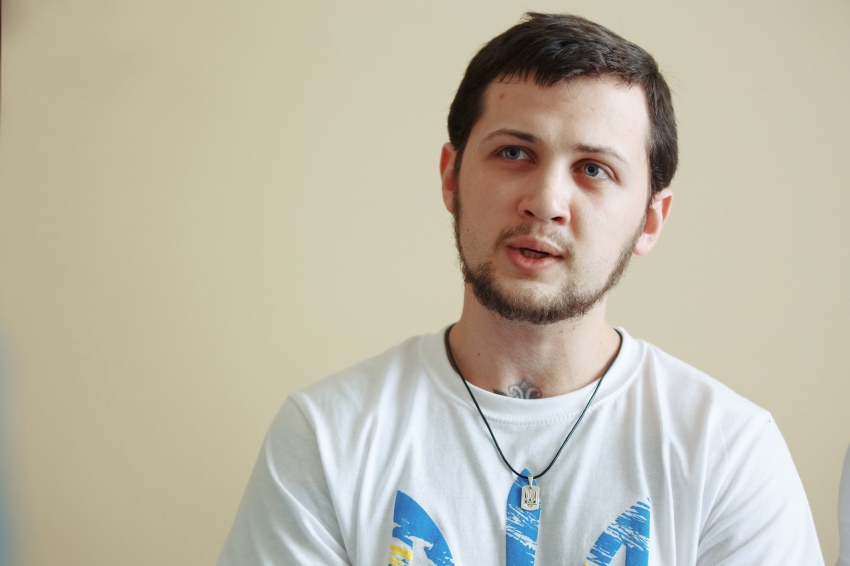
I attended the Victory Day parade in Simferopol on May 9, 2014. I had a photograph of my great-grandfather in my hand. Then, went to see a friend who lived nearby, but on the way some guys attacked me with guns and pushed me into a car. Several journalists filmed everything. They threw me on the floor and put a bag over my head. They hit me in the stomach and head, threatened me, asking about different people, and told me they were driving me into the forest where I could dig my own grave.
Finally, they drove me home. They obviously knew where I lived. They took the keys to my apartment, led me in and threw me on the floor. They proceeded to search my apartment but found nothing. Then, they drove me to FSB headquarters and threw me in prison for ten days.
I didn’t have a lawyer. There were a lot of criminal investigators from Moscow and big muscular fellows from the Caucasus, some FSB employees. I was chained to an iron table. First they threatened me, but I didn’t say anything. They beat me all day.
When they realized I couldn’t answer their questions because I didn’t know anything, they demanded that I perjure myself. They wanted me to confess that I’d planned to blow up the Eternal Flame Memorial on May 9. This was absurd because I myself had been at this memorial! I was arrested nearby, and many people witnessed that. They put on boxing gloves and punched me hard all over the head… that leaves no bruises.
I was taken to a temporary detention room for the night. I spent ten days there… I wasn’t allowed to sleep or eat. There was no toilet paper, nothing at all. It was a small cold room in a cellar.
I had a bag over my head for the first five days. They tried to choke me… I have to tell you. People need to know what’s happening. I’m not the only one. I’ve seen a lot… They didn’t do this to everyone, just to persons they really needed.
They brought in Oleksiy Chyrniy [Ukrainian political prisoner, one of the Crimean Four - Ed.], who told them a lot about me. I knew Oleksiy. We met when friends and I were organizing medical assistance for our people who were surrounded by Russian troops.
This is a psychological game when a person testifies against you, and investigators say that you’re done. They told me I didn’t have a chance.
“You’ll get 20-25 years. If you confess, you’ll get less.”
I decided that I’d give testimony against myself. I only admitted to planning an arson attack, so I signed the agreement. I didn’t accuse anyone else. Then, they got very interested in Oleksandr Kolchenko and Oleh Sentsov [political prisoners, part of the Crimean Four - Ed.]. Oleksiy Chyrniy testified against them.
It was then they really started torturing me.
They put a gas mask over my head, unscrewed the lower valve and poured water into it. I began choking on my vomit… As soon as they heard me coughing and choking, they’d take the mask off, revive me with some smelling salts, and repeat the whole process again and again and again.
Then, they attached electrical wires to my genitals. I could bear the puking and choking, but this was another kind of pain. This was how they forced people to sign documents.
I knew what was written on that paper. I read it. The whole confession was there, written out neatly and properly. Towards the end, they undressed me, put me on the floor, some guys held me down and others moved a soldering iron along my body, describing what would happen to me if ever it touched my skin.
But, the most important person for me is my mother - and they threatened to get to her. This broke me…
I blame myself for not being stronger. I retracted my confession, but still...
I signed those documents and was moved to Moscow. They made the same threats, forcing me to appear on television and say what they needed to be said. I recalled how they’d tortured me, and I didn’t believe that anyone could protect me. So, I just repeated what was required.
I was very wary of human rights activists. What could they do if I told them how I’d been treated. What next? I really don’t know…
I spent a year and a half struggling with myself over the false evidence I’d given about those innocent guys. I managed to hold back until their trial because I knew that if I retracted my statement beforehand, the investigators wouldn’t allow me to testify in court. I wanted to surprise everyone. So, I waited… I decided this was it, the end. I wrote to my mother and all my friends, apologizing for my sins.
After my retraction in court, the FSB operatives in Rostov continued beating me. However, several lawyers and counsels for the defense attended these court sessions, so they were able to see and record the injuries that were inflicted on me.
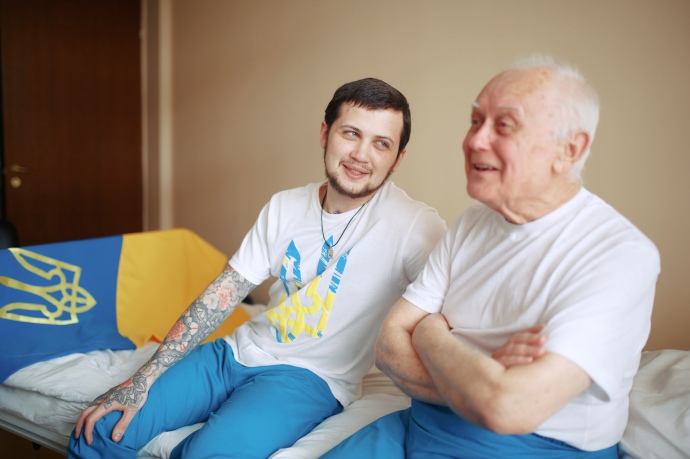
The Russians kept their promise. They took me to a modern-day Gulag camp in the Komi Republic, the only such penal colony in Russia. Actually, I wasn’t even in the colony, but in some grim and austere barrack.
I can’t explain it to you. You can’t understand because you weren’t there.
The transfer to the penal colony was very difficult. It was 40 to 45 degrees [Celsius, same as 104 to 113 degrees Fahrenheit - Ed.], and the wagons got so hot they had to hose them down from fire engines. There was no water, no toilets inside. These are normal conditions for Russian prisoners. They live like animals… there’s no other way to say it. I was transferred to the penal colony where one night they planted a knife in my stuff.
I filed a claim, but they refused to produce the video of that night, saying it had nothing to do with the case. No witnesses, no defense – they refuse everything. Because of this knife, I was immediately moved to a solitary confinement cell, and then to a strict-regime barrack.
It was a huge barrack surrounded by an iron fence and patrolling guards. It’s like being in a zoo – there are people all around you and they can see everything you do. Then, there are the other prisoners near you - 100 persons on 150 square metres [same as 1600 square feet - Ed.].
There’s no place to sit; smoking is forbidden. I complained about the conditions, I complained all the time.
You know, after my testimony in court, and when I declared that Kolchenko and Sentsov were not guilty, something changed inside… I stopped being afraid.
I didn’t believe anyone… even my lawyer Popkov although he showed me his certificate and documents. I refused to speak to him.
I got very sick in the Komi Republic.
I don’t know the exact diagnosis. I was examined. My skin was red and swollen, and something had to be done… but no one did anything. So, I cut the boils myself. The boys tore up some sheets; we dressed my wounds; then we washed the sheets again and repeated the process. They got some baby cream somewhere and rubbed it into my wounds. We did what we could.
After a while, they brought me some antibiotics, which upset my stomach. The boils disappeared, and then re-appeared in a week or so.
One day, someone put a SIM card [a microchip used to transfer owner's personal data between cell phones - Ed.] in my winter jacket. The jackets were kept in a separate room that was locked at night. In the morning, we were told to go outside – they wanted to conduct a search.
Some guy came up to me and accused me of having a SIM card. I told him to check the calls and billing; they’d see it didn’t belong to me. They took it away and destroyed it.
I was taken to women’s penal colony No.31 in Mikun. The most dangerous criminals are guarded in a small room. I was kept in solitary confinement. I was completely alone for two months and fifteen days. I didn’t see anybody; there were only a few books around me.
I got some letters, but they stopped coming in the last month… either they got lost or were delivered somewhere else, or no one wrote. So they said…
I was sent back to Rostov after a year and three months. They gave me my belongings, and there they were… all the letters I’d written, and all the letters people had sent to me. My book by Taras Shevchenko was also there; I’d brought it with me.
… Actually, Yuriy and I are giving you a very short description of what happened…
You know, every day spent in a cell, especially if you’re in solitary – it’s like a movie, and it’s your whole world. You don’t know what’s going to happen next, so you worry and you suffer.
We have a lot to tell – about all the illegal investigations in Russia, about other men and women who were there with us…
We have to do this gradually – we must remember, let it all come back, feel it and describe it to you. Two years and two months – it can’t be summarized in 10 to 20 minutes.
Yuriy calls me his grandson, and I call him grandfather.
We want to meet with all the political prisoners because we feel that we’re ONE – we’ve experienced the same things and we’ve survived.
For me, Oleh Sentsov is a hero and part of the family. We’ll do all we can to get everyone back home. That’s our goal!
I once saw Sentsov at some festival in Crimea. We met only once and I probably wouldn’t remember him if not for this situation.
So, you ask me what to tell other Ukrainian prisoners in Russia. Well, it’s best not to be there because you won’t get a fair trial or normal humane treatment.
If a Ukrainian finds himself in such a hopeless situation, he should stay alive and we’ll free him. Then, he’ll be safe and healthy.
One should not die! Don’t sacrifice your life!
YURIY SOLOSHENKO
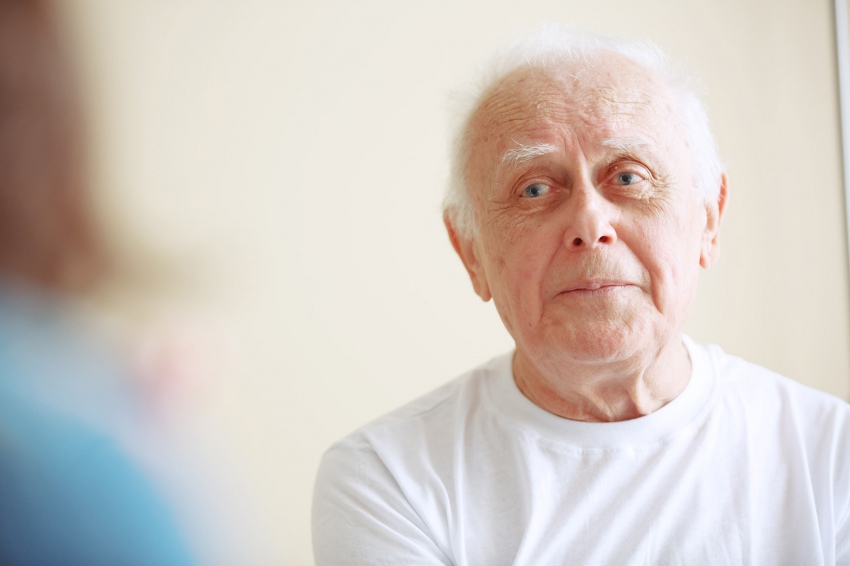
I was the director of a factory that worked with the Ministry of Defense of Russia. Russia was our only customer because we produced military equipment that was used in the Armed Forces of the Russian Federation.
We worked as one team from the Soviet period until the factory closed down. We were invited to many seminars in Russia. We took our Ukrainian flag with us, and raised it while singing the Ukrainian anthem. It was a pleasant time; we respected each other.
One day, a customer – a colonel in the Russian Army – called and told me they’d purchased a large number of our components, and asked me to authorize its use in their complexes. I’d already left the factory, and I was just going to accompany my wife for medical treatment. But, he insisted… just for one day; there and back, he said.
So, I travel to Belgorod, go through the passport control, and the officer checks my documents and leaves. I know something’s wrong; I feel I’m being set up. But, I’d been working with Kolegov for twelve years [head of the Department of Defense Procurement at Roselektronika, who asked Soloshenko to come to Russia - Ed.].
I don’t even want to pronounce his name now. I can’t call him human. I’m a Christian, and I must forgive, but some scoundrels cannot be forgiven!
I meet this Kolegov and Demyanov, a former colonel in Moscow.
“So, you came with nothing?”
“I’m here for the day, so I didn’t bring anything. So, let’s go and check the equipment.”
We arrive at the office and I see the equipment that I’m supposed to check. Before I have time to greet everyone, the door swings open, and it’s like a scene from a detective story: “Don’t move! FSB!”
I’m stunned and think these guys are playing some kind of trick on us. They must’ve come for one of the others, not me.
An officer jumps towards me, pins me to the wall, feet and arms apart. I don’t understand what’s going on. They search me, take both my phones, put them in a plastic bag, and give it back to me. I look at the bag, see my phones and some strange sheets of paper.
“They’re not mine!”
“Yes, they are. You had them on you!”
It turns out they’re some secret documents that I allegedly wanted to steal from Russia.
I was told the “secret files” were designs of C-300 systems, which have been used by the Armed Forces of Ukraine for 40 years, and the components are manufactured in the Generator plant in Kyiv.
I was tied up, handcuffed, and photographed. This was their “proof” – two phones and some documents that they’d obviously planted. My fingerprints were certainly not on those papers. I didn’t even have a chance to look at them. I still don’t know what’s written on those papers. I wasn’t at all interested.
We arrive at the Criminal Investigation Division. I actually thought they’d sort everything out and I’d be on the next plane out. I look at their stern faces as they draw up the detention report.
The investigator tells me they’ve notified the embassy. We arrive at the court, and I refute these absurd charges.
But, the judge tells me it’s not about the charges, but about measures of restraint. He decides to put me in solitary in Lefortovo Prison. Next day, I’m escorted under guard to the Criminal Investigation Division.
“Ask for Russian citizenship, and you’ll be given the status of a witness. We’re not after you; we want Kolegov. You know, he’s got a high position, so he’s always been under surveillance. If you ask for Russian citizenship, you’ll be protected by our law on the protection of witnesses.”
I refused, of course. That was it for me…
My friends in Moscow were very helpful; they gave me what I needed as I didn’t even have a toothbrush with me. The investigators told me to dismiss the lawyer my friends had provided; he’d do me no good as he would try to worm secrets out of me to protect my friends.
The court extended the restraint measure to two more months on October 2.
I almost had a heart attack when I learnt they wouldn’t let me go. I felt awful. I’d hoped that this misunderstanding would be resolved in two months. I spent a month in solitary. Then, I was escorted to the Criminal Investigation Division where I was told that they couldn’t conduct an investigation as my lawyer refused to appear. They provided another lawyer, “an excellent and highly principled specialist” who gave me this advice:
“From tomorrow on, we’ll start preparing materials because espionage is a very serious charge; you’ll get 10 to 20 years, no amnesty and no favours.”
He promised a lot, but “pay up in advance, and then we’ll start working.” Well, my children paid him.
“We have two options – either you plead guilty, and you get a minimum sentence of 10 years, or you plead not guilty and you get 20 year.”
“Look at me! Do you think 10 or 20 years make a real difference to me? I’m definitely not pleading guilty!”
They obviously don’t have enough materials. They summon me again and inform me of the next plea agreement:
“If you plead guilty to espionage, we can sentence you to house arrest, and you can stay with your friend who lives near Moscow.”
They tell me that the head of the division has a friend – the deputy chairman of the Moscow City Court – he’s talked to him and I’ll get a suspended sentence.
My children write to me. They tell me what measures are being taken; they often travel to Kyiv, negotiate and talk with people; human rights activists have taken up my cause. Russian Ombudsman Ella Pamfilova tells me she can’t help me at that very moment, she must wait until after the trial.
I know that the charges are ridiculous, that no one in Ukraine will believe them. Why should I steal these “secret documents” if we already have them in Kyiv? So, I agree to house arrest, but demand confirmation from the director of the Criminal Investigation Division.
In comes the director of the Division:
“Yuriy Danylovych, my father is also called Yuriy Danylovych, and he was also born in 1942. I respect you. When I told the deputy chairman of the court how old you are he told me to forget it and let you go home."
They go and see my friend, and look over the place where I’m supposed to be held under house arrest. They show me the letter; I’m familiar with my friend’s handwriting. So be it… and I sign that disgusting paper. I can’t read it to the end; it’s all so implausible, absurd and horrible.
After some time, they take me to the Criminal Investigation Division again. The table is nicely set, a bottle of cognac and sandwiches:
“You see, everyone agrees, except for one person. He says you’re not registered in Russia, so you can’t be under house arrest... Let’s have a drink now.”
I refuse… and he continues:
“If I let you go, that means I may as well write my final report and resign. Your detention was decided at the General Prosecutor’s Office and the FSB.”
I realize that all hope is lost. Nevertheless, I write to the Presidential Administration and the Director of the Criminal Investigation Department. No answer, nothing… Time goes by.
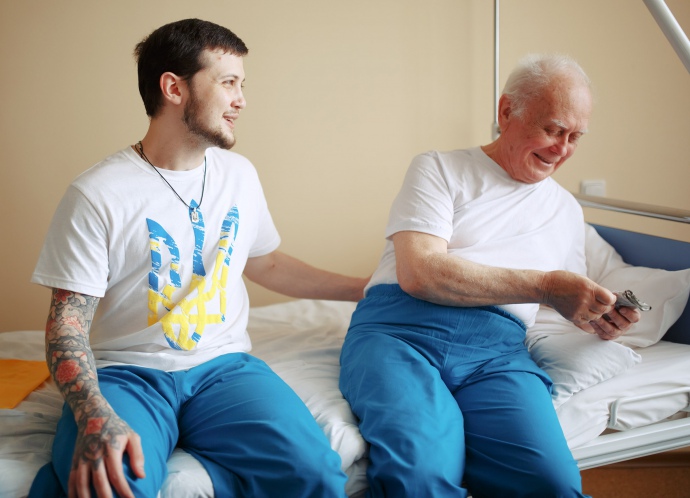
I read the first volume of the investigation material. The FSB certifies that these components were produced in a Ukrainian factory. The information seems to be in my favour… if it were read by an intelligent person.
I don’t see any of my conversations noted in the material. It’s all been carefully prepared. They’d call me, talk about this and that, ask some questions... Only then do I realize they were trying to provoke me so that I’d say something interesting.
I signed one volume, but there are four of them. They lean on me:
“Hurry up! Everything’s arranged. You have to do it faster.”
Suddenly, things began to speed up. I signed all the volumes on the 11th, they were delivered to and registered at the Prosecutor’s Office on the 16th, and on the 19th
I received notice that my case was registered in court. Maybe they’ve decided to give me a suspended sentence and send me home.
Then I get a note from the court - a hearing is scheduled for October 1.
It was a closed hearing. No one was allowed into the courtroom, no TV, no consul or representative from the embassy.
I spoke in my own defense at the third hearing. The judge listened to me, but in the final report it was noted that my words were not at all convincing.
The sentence was read on the 14th.The courtroom was open to the public; human rights activists and the consul attended.
I get a letter – the sentence must be executed, I must be transferred somewhere to serve my sentence. At that time, I was in hospital. Ella Pamfilova informed me through human rights activist Zoya Svetova that she’d be discussing my pardon on December 10th at a meeting with President Vladimir Putin.
It’s December 10th and I wait... I turn on the TV, there’s Ella Pamfilova talking with Putin. Everything looks fine; I start packing. A fool… that I was!
... Stolypin-like wagons. My wagon seems like all the others – a narrow corridor, seats along the side, but iron bars everywhere. There are no windows. Three shelves on both sides. Twelve people in the compartment, all smoking.
I’m taken to the penal colony in Nizhny Novgorod. I’m admitted to the prison hospital where I stay for two weeks. But, my health deteriorates, and I’m admitted to the regional prison hospital. I spend two and a half months there, and then I’m transferred to the colony. I’m allowed to make some calls. I know something is happening, and I’m hopeful again…
I was in a cell with some very respectable people - two doctoral degrees. One was a colonel in the Special Forces, a real army man with a lot of medals. The other guy was from Georgia; he asked me to sing the Ukrainian national anthem, but in a low voice so no one would hear. 22-year-old Lesha from the Kuznetsk Basin helped me recall Pavlo Tychyna’s words [Ukrainian poet - Ed.]: “I ask no one for the right to live. To live, I’ll break my chains. I assert myself, I'll get stronger, because I live.” He asked me to write them down on the cover of his diary.
No one beat me, but they tried to break me mentally… destroy me. Of course, I wanted to see my grandchildren. The investigator remarked one day:
“Sure, it’s better to die at home, don’t you think?”
“You won’t live to see it!”
Some Russian organizations wrote me letters. Others had seen me on the Internet and wrote me. I even got a letter from a young woman in Canada, Olha.
When I was transferred, all my letters were delivered to me. One was from Serhiy Arkhypchuk, Honoured Worker of Arts of Ukraine who greeted me on my birthday on May 6. I received his card on December 6. I got letters from Valeriya Lutkovska [Ombudsman of Ukraine - Ed.] and Pavlo Klimkin [Minister of Foreign Affairs of Ukraine - Ed.].
You can’t count on any show of humanity in Russia. This monster, Russia, is led by one powerful man – an autocrat of All Russia and his FSB minions.
I’d like to say this to all the hostages in the Russian Federation: Hold tight! Believe and hope because Ukraine has not forgotten you. Our country is fighting for each and every citizen.
Don’t lose hope!
If I didn’t believe that I’d be going home, I really don’t know if I’d have lived to see this day.
Every day, I’d fall asleep and wake up with this thought. It was my prayer.
Related:
- Soloshenko: What imprisoned Russian army officers told me...
- What does Putin want for releasing Savchenko?
- Ukrainian prisoner Oleksandr Kolchenko meets with mother
- New sanctions possible if Russia keeps violating Ukrainian hostages' rights #LetMyPeople go
- War crimes in occupied Donbas: every second prisoner tortured, 16% witnessed executions
- Beaten, drugged, electrocuted. Ukrainians tortured into "confessing" of Chechnya crimes in Russia
- Torture and confessions in Russia
- Raped, tortured, buried alive: Horrific crimes of pro-Russia militia in Ukraine
- 'It's important the world knows about inhuman torture used against Ukraine's POWs,' says father


